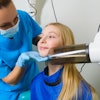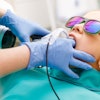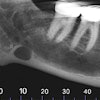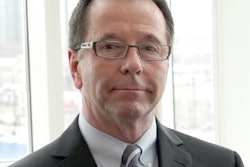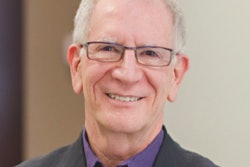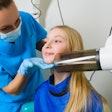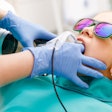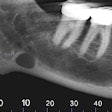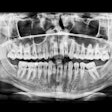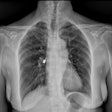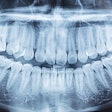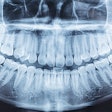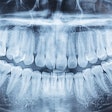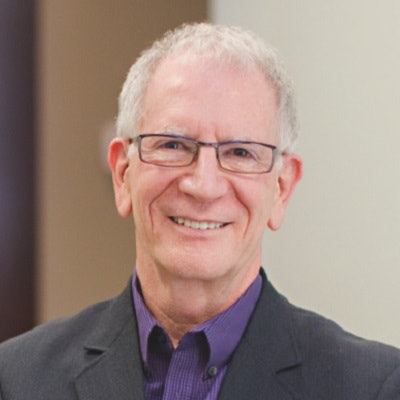
Over the past several weeks, two potential patients called my office with basically the same question: "If Dr. Danenberg is holistic, why does he take dental x-rays?" My receptionist had the right answer.
She explained to the callers, "Dr. Danenberg is holistic, and the office only takes necessary dental x-rays when he needs to see what he otherwise could not see inside your teeth and inside your jawbone."
When I talk with my patients, first I explain the meaning of holistic, and then I describe dental x-rays and dental radiation.
Holistic
 Alvin Danenberg, DDS.
Alvin Danenberg, DDS.Holistic dentistry is not a recognized specialty of dentistry; it is a philosophy of how dentistry is practiced. There also is no formal definition that is accepted for holistic dentistry.
For me, holistic dentistry means taking into account a person's entire state of health. In my mind, all medicine should consider all factors, including the environment that affects their patients' health. I believe nutrition and lifestyle are critical for health. Our primal ancestors, who evolved over 2.5 million years, developed strong, healthy bodies because of their diet and lifestyle. A nutrient-dense diet and active lifestyle support a strong immune system, which in turn prevents many diseases.
Holistic dentists primarily use natural therapies in combination with conventional ones to prevent, diagnose, and treat dental diseases. Dentists with a holistic philosophy oppose the use of amalgam and other toxic materials to repair teeth. These dentists prefer nonsurgical approaches to surgical procedures when possible to treat dental diseases.
Dental x-rays
“Holistic dentistry is not a recognized specialty of dentistry; it is a philosophy of how dentistry is practiced.”
When I explain the importance of necessary dental x-rays to my patients, I start with an analogy:
"If you had a problem with your car and you took it to your auto mechanic, you probably would ask what was wrong. The mechanic would most likely tell you 'I need to look under the hood.' But, what would happen if your response were 'No, I don't want you to open the hood'?
"How could the mechanic find out what was wrong if he could not look inside the guts of the car? How could he attempt to fix your car problem if he could not see what he needed to see?"
In that way I bring it back to their dental problem.
"If you came to me with a problem in your mouth, I might suggest that I need to take some necessary x-rays to see what I cannot see with my naked eyes. If you said I couldn't take the x-ray, I would not be able to see the problem in your bone or inside your tooth. An x-ray would be the only way for me to see what I need to see in the area in question," I tell them.
Dental radiation
We are exposed to natural radiation from the sun every day, I tell my patients.
"If you have four dental x-rays taken, the radiation would be less than one day of natural background radiation you would receive on average (depending on where you live)," I say. "Similarly, these x-rays would result in about the same amount of radiation exposure you might get from an airplane flight lasting about two hours."
I also point out that we further reduce exposure from dental radiation by using proper shields that are placed on patients when x-rays are taken. The fact is that, in all of medicine, dental x-rays produce one of the lowest exposures to radiation.
I do what my patients need
I treat my patients holistically, which means I treat my patients as a whole person. Each cell of our body affects every other cell in the body. Because of this, I know that it is critical to help every cell in the body to survive and thrive. To help me know what I need to know as a periodontist, I must look deeply enough to see what is happening. That often will require me to take necessary x-rays to see what I cannot see otherwise. Necessary x-rays allow me to develop the least invasive and natural treatment I can offer my patient to arrive at a healthy result.
A version of this column first ran on Dr. Danenberg's blog. DrBicuspid.com appreciates the opportunity to reprint it. Future columns will address how dentists can serve their patients and their profession.
Alvin Danenberg, DDS, practices at the Bluffton Center for Dentistry in Bluffton, SC. He is also on the faculty of the College of Integrative Medicine and created its integrative periodontal teaching module. He also spent two years as chief of periodontics at Charleston Air Force Base earlier in his career. His website is drdanenberg.com.
The comments and observations expressed herein do not necessarily reflect the opinions of DrBicuspid.com, nor should they be construed as an endorsement or admonishment of any particular idea, vendor, or organization.
